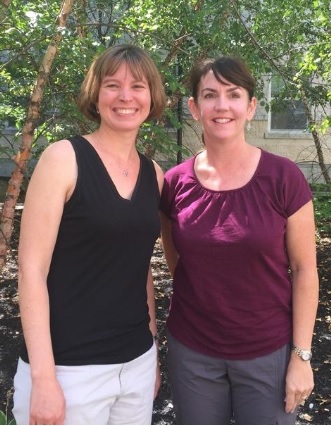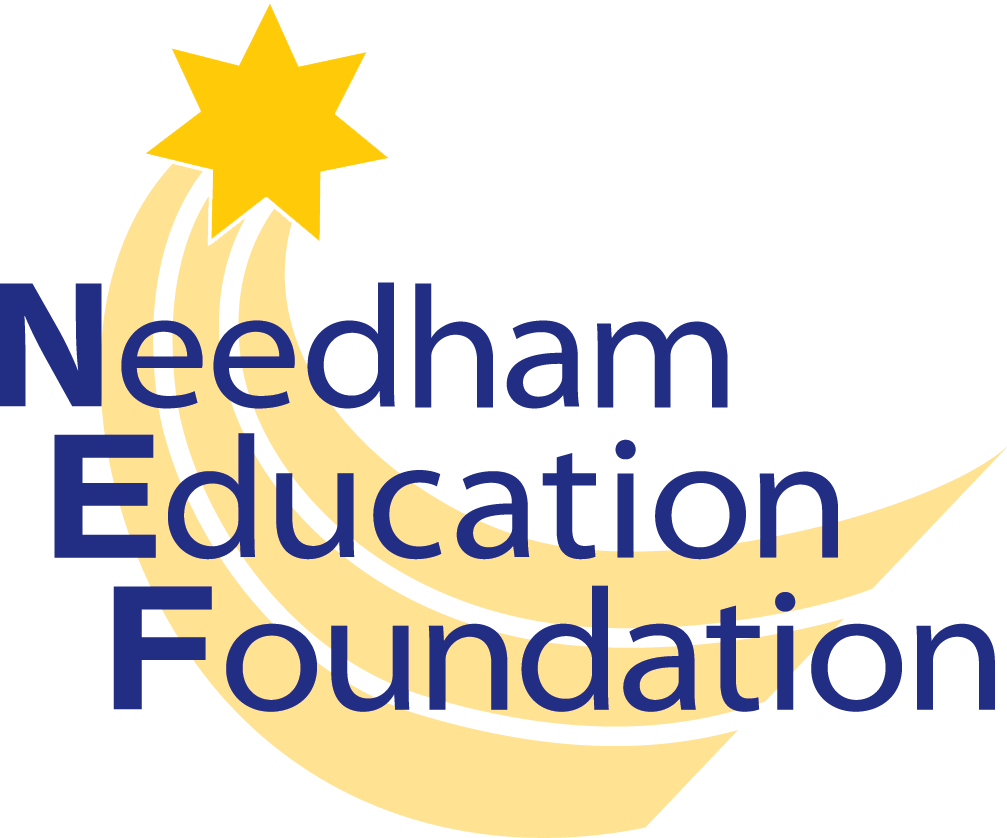By Stefan Geller from The Needham Times, August 28,2017
Sarah Winig and Kelly Partridge both joined the board of the Needham Education Foundation (NEF) three years ago and have since become co-presidents of the organization.
The NEF raises funds and awards grants to the public schools for programs and equipment that falls outside of public funding.
The NEF was founded in 1990 by Needham High alumni, who built a sustaining fund that helps the foundation today, though it still raises money each year. The grants have paid for all kinds of school programs, such as the DaVinci Engineering Lab, interdisciplinary projects and small grants to pay for authors or performers to come speak to the kids. Winig and Partridge sat down with The Needham Times to discuss the work they have done with the NEF.
What are you most proud of that you have helped bring to the Needham schools?
SW: The Greater Boston Project. A few years ago the board and the district worked together to come up with an idea for an interdisciplinary learning class. It’s a team-taught class with an English teacher, math teacher and social studies teacher. They studied a bunch of different themes about what made Boston the way it is. It has been a phenomenal thing for the kids.
KP: I was going to say the same, because it was a really big undertaking. Now that it’s been five years since we kicked the project off, the district has taken over the funding of the three teachers and the class is continuing, and now the high school is looking to offer more interdisciplinary classes. For so long kids have been taught English, science and math in separate rooms, but more studies show that that doesn’t work in today’s world and the NEF is helping the school move away from that.
Which program do you think gets far too little funding?
SW: Professional development is something the district asks us a lot about. At first we were nervous to fund it because it doesn’t seem to directly benefit kids, but if a teacher learns a new way to teach a subject or learns a completely new subject that will benefit them. And there are limited funds for professional development.
KP: I think new technology doesn’t get enough funds. Technology is changing so fast and for any school district to try to keep up is impossible. We’ve been trying to help here and there. All the classrooms have smartboards, the NEF funded the first ones a few years ago then the district got them for everyone. There’s so many pieces of technology and it’s hard for the district to keep up.
If you were back in high school what do you wish an educational fund could have provided you?
SW: The ones that excite me are the hands-on programs. Like the planetarium that we funded for the science center, or the sandbox at Pollard Middle School that has a projector that overlays a topographic map which changes as you change the surface of the sandbox. It’s hands-on things like that that I wish I’d had.
KP: I would have liked having cool new materials. And more in the sciences, to be able to have access to the equipment that professionals use as a high schooler is a really cool thing. And while we do big projects like the Greater Boston Project, the nuts and bolts of what we do are small things like that.

